Unless you’re a diehard fan of the Masters Golf Tournament or a music historian specializing in R&B/soul, you’ve probably never heard of Augusta, Georgia. The small town sits on the Georgia/South Carolina border, three hours east of Atlanta. Confederate flags fly proudly and the Klan still marches on occasion, albeit minus their white hoods.
Augusta has its share of musicians who “made it”: rock bands Veara and Dead Confederate, two-thirds of country supergroup Lady Antebellum, guitar legend Steve Morse, and of course James Brown. Sharon Jones, charismatic frontwoman for the Dap-Kings, was born in Augusta — in the stock room of University Hospital, where Jones’ mother was relegated to give birth amidst cardboard boxes. That was 55 years ago, but Jones, who as a child moved to New York with her mother, hasn’t forgotten her early years in the deep South.
Jones and the Dap-Kings are touring their fourth full-length album, I Learned the Hard Way, which could easily be the name of her autobiography, should this immensely talented woman ever choose to write one.
Planet Ill spoke to Sharon Jones about sweet soul music, making records the old-fashioned way, and how times have and haven’t changed down south.
Planet Ill: Your story has been told so many times with a tendency to focus on the same aspects. What are interviewers missing?
Sharon Jones: I do so many interviews where people ask where I was born, where I sing. They’re important things, but a lot of people don’t know that I’ve been in New York a long time and that I was 40 when I got my first record out. I’m 55, I released my fourth album and they’re just now hearing about me. It’s an honor to be recognized as a soul singer and compared to James Brown, Aretha Franklin and Otis Redding. There’s a new generation of soul music and it’s exciting to be considered among the new soul artists. I love being onstage and connecting with the fans. Watching people sing, dance and have a good time is my enjoyment and my high.
Planet Ill: What does the term “soul” mean to you?
Sharon Jones: Today they call it “retro.” With pop, hip-hop and digital recordings, people aren’t introduced to soul and R&B unless they hear music from Motown and Stax. A lot of new indie labels portray soul and people need to be exposed to more of that. They used to think you had to be Black and go through hurt and pain to sing soul music. No, you don’t. It doesn’t have to be about being depressed and hell bound. It’s just music that has feelings. My band is mostly young white boys, Latin, Jewish and Italian, and according to some people, that has nothing to do with soul music. That not true. Soul is music coming from the heart.
Planet Ill: The Dap-Kings still record on analog with an Ampex eight-track machine. Many people probably wonder why you use tape when digital technology makes recording so much easier.
Sharon Jones: We use tape and make vinyl and that’s why there is an authentic sound. The only digital technology we use is what we play the CDs on. We keep the sound of real soul music by using tape and cutting it down. I sing, the horns play, we harmonize and we record live with one mic, even the backing vocals. As people come in with the new digital stuff, they lose the originality and the old-school sound.
Planet Ill: Gabriel Roth has been your producer, bass player and bandleader since you began fronting the Dap-Kings. How has your working relationship grown and changed?
Sharon Jones: When they first started years ago, they wanted to record 45s, and after people got involved, they saw it becoming a business. I wanted to make money, and I said, “If I’m going to get into this, it’s going to be the last job I plan on working.” Daptone Records became an LLC because we couldn’t just hang here and not make money. We’re partners with royalties and publishing percentages. Daptone is now a band-owned label. We do all of the recording and playing. Gabe is the president of the label, the bandleader, writer and producer.
Planet Ill: What made you feel that you could trust Gabe after being let down by so many people in the music industry?
Sharon Jones: I didn’t know. I had to go with it. It was the way he did things. He never told me how to sing. I’m about deep-down soul and gospel roots, and Gabe let me be me. I was singing with a wedding band and I turned down good money to come work with him. [Note: Jones was working as a corrections officer at Rikers Island and making $500 per gig with the wedding band. She earned $75 per gig when she joined the Dap-Kings.] I never signed a contract with Daptone until we became an LLC.
Planet Ill: In addition to your own tours, you perform everywhere from blues festivals to Lollapalooza. Is there a tendency to underestimate what audiences like?
Sharon Jones: Oh yes, absolutely. The industry needs to pick up on it and look at the independents and help boost us, not hinder us. People want to hear this kind of music, but no one plays it. The major labels don’t want to touch it because they’re afraid they’ll lose money. We’ve even played at bluegrass festivals. The first time, I was on pins and needles. I said, “What are we doing here?” I’m always nervous before a show, but I looked out there and thought, They’re going to hate our music. The KKK is probably out there! They’ll kill me! But everybody was laid back and by the time we finished our show they were standing up, clapping and saying they were so glad we had played. Not one person booed me.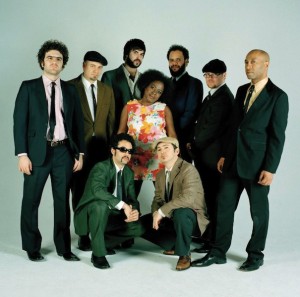
Planet Ill: You once stated in an interview, “One day, people are going to accept me for my voice and don’t look at the way I look,” and that you were told you were “too fat, too Black, too short, too old.” When did you finally stop letting them tear away at your self-esteem?
Sharon Jones: It took a while and it was not easy. When James Brown wrote “Say It Loud — I’m Black and I’m Proud,” I was able to look in the mirror and no more did I cry and want to fight. I was proud to see other Blacks as they progressed — Sidney Poitier Leslie Uggams, Flip Wilson, Sammy Davis Jr. They were making it and people accepted them. White people accepted them. Then Black people say, “You’re selling out.” No, you’re living your life and being accepted. Those haters — you cannot please everyone. People say mean things to me. I looked on YouTube and people were saying that I’m ugly and Black. I was in tears. I wanted to hide in the corner and be ashamed. My friends said, “These people are knuckleheads! Everyone is not going to love you, so get over it and get used to it.”
Planet Ill: How is I Learned the Hard Way the next step for Sharon Jones and the Dap-Kings?
Sharon Jones: This new album represents our growth as a band and as musicians. When I look at our albums [Dap-Dippin’ with the Dap-Kings – 2002, Naturally – 2005, 100 Days, 100 Nights – 2007], I hear the differences in our music from when we were recording in a basement until now. We started out with a more early ’60s sound and naturally moved into a more Stax/Motown feel. No matter what we do, our music is still soul; that’s where we stay.
Planet Ill: You began singing in church and remain very strong in your faith. How has that helped you through hard times?
Sharon Jones: I remember my first solo as an angel in “Silent Night.” We lived in North Augusta [South Carolina] and went to a Baptist church. There was no water where we lived. We all went to the spring or the hydrant for water. We used outhouses. When my parents separated, my mother and I came to New York. I’m so glad we moved here, where I could be around so many different people and cultures. We’d go back to visit during the summers. My faith has always been important to me. God gave me a gift, my voice, and God has kept me going. After all these years, I’m finally able to buy my mother a house and get her out of the projects, and it’s an honor to be able to do that for her. Hopefully, I can buy one for myself in another year or two. Yes, I am blessed.
Planet Ill: Do you return to the area often? Does it bring back memories?
Sharon Jones: I don’t visit often, but it has changed so much. I remember my grandmother cleaned houses and there was one family, one young lady — my grandmother had raised her mother. I came to visit and I was older than this girl; I was 14 or 15 or maybe older and she called down and said, “May I speak to Dora?” I said, “You mean Miss Dora.” She told my grandmother that I shouldn’t be answering the phone and to teach me how to talk to white people down here! I said, “I am older than you are and I am not going to say ‘Yes ma’am’ and ‘No ma’am’ to you. You should be saying ‘Yes ma’am’ to my grandmother, and I will answer the phone in this house.” That was things in the South.
I am so glad my mother brought me to New York. I lived through segregated schools, Martin Luther King and President Kennedy being killed, and I look at films now and I think, “How could people look at Black people who helped build this nation and say that we are not human beings and we have no rights? Thank God my mother took me to New York and gave me a better outlook. Now I can come down and I get nice treatment. I remember when I couldn’t go into a restaurant through the front door. When we rode on the Greyhound bus to New York, I remember I cried because I wanted water from the water fountain. They were marked “Colored” and “White” and I wanted to drink clean water from the clean fountain, the “white” fountain, not the rusty one. My mother got a cup and got water from the clean fountain for me. I could’ve gotten her in trouble.
South Carolina still has places where you cannot go, where my sister told me, “They don’t like our kind.” It will never go away, but it’s not as bad as it used to be. And it really is still going on. I mean, when you hear how they talk about President Obama and all the negative things they say … it’s really too bad that this still goes on and people still teach their children to be the same way. But I learned through God that you’ve got to forgive in order to go on. Otherwise, you’ll just be sick and miserable.
Follow Us on Twitter @ http://twitter.com/planetill
Join Us on the Planet Ill Facebook Group for more discussion
Follow us on Networked Blogs

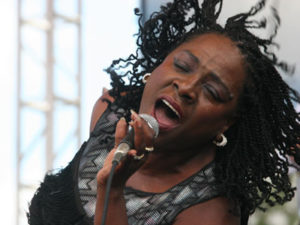
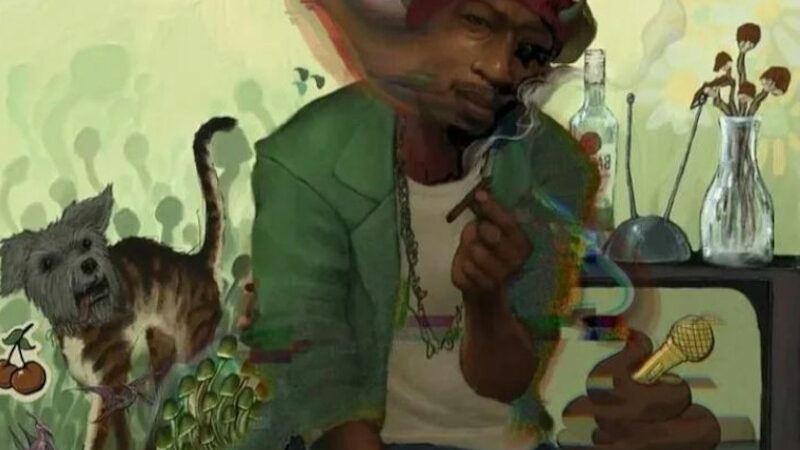
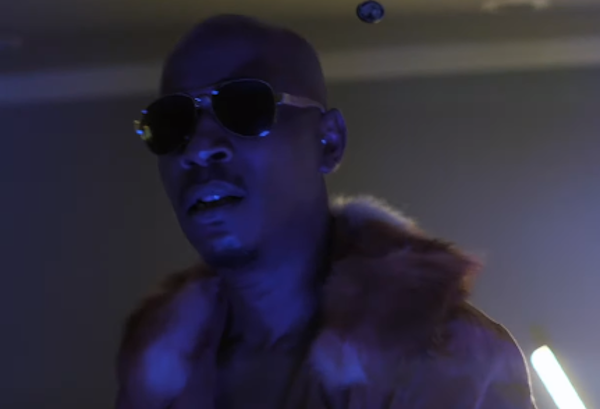
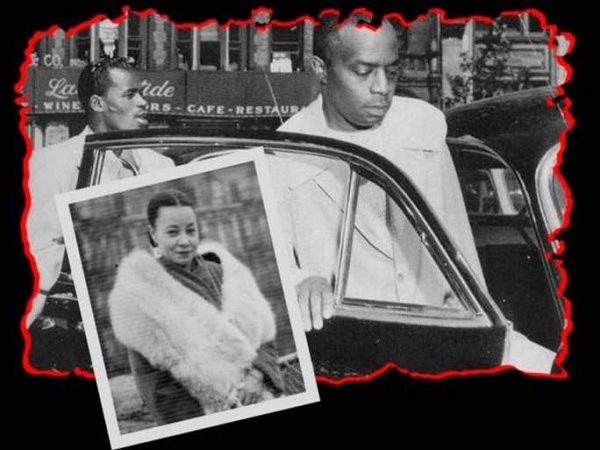
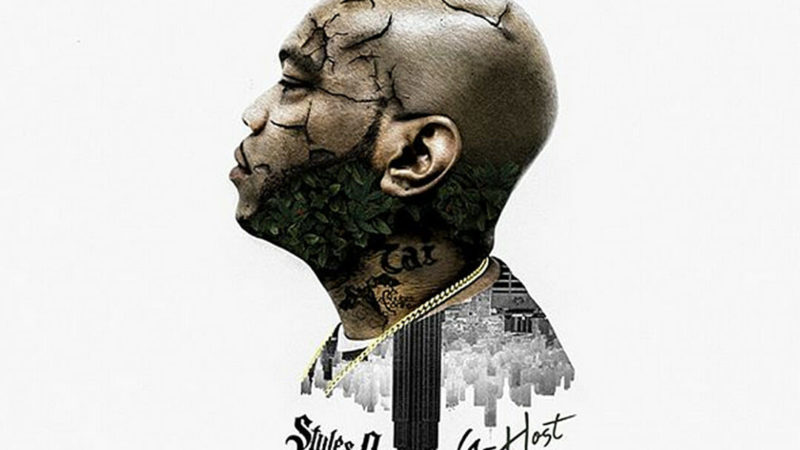
One thought on “Sharon Jones: Soul Power”